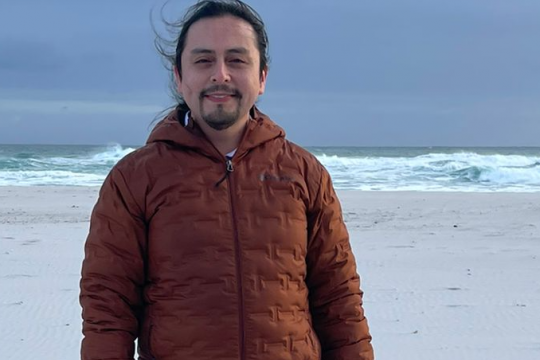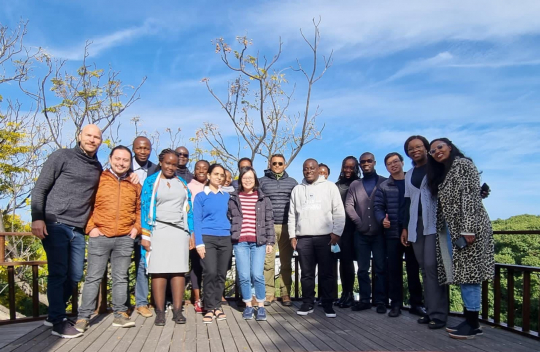Twenty researchers from the Global South who obtained their doctor’s degree five years ago or less are participating in the EfD’s Early Career Fellowship program. The purpose of the program is to train the researchers in qualitative research with a high impact on public policies. Meet Dr. Mauricio Oyarzo from EfD Chile who is one of the participants!
What is this program about?
The program provides us with policy engagement tools and econometrics tools. It focuses on the future application of projects, especially those related to improving the quality of life of people, and the links between the economy and the environment. It lasts for two years and is online with some face-to-face meetings per year.
Who are the participants in the Early Career Program?
We are young researchers from countries such as Vietnam, Ghana, India, Kenya, Nigeria, Tanzania, Uganda, and Ethiopia. There are two people from South America, a researcher from Colombia, and I, from Chile. There is a lot of diversity and different lines of work, which is very enriching.
What do the classes consist of?
Classes started in early May and have been quite intense, with lots of discussions and group work. We have been asked to describe the activities of our EfD center in terms of concrete political impact. Each representative has been sharing how their center has developed activities to attract policymakers, and whether this relationship is independent of the political cycle. We have concluded that this is one of the biggest challenges for the centers. For this reason, EfD Chile aims to develop a bond with the technical staff rather than with the administrators -which change more frequently.
Do you plan to develop any specific proposal in this regard?
Yes, our second task is a policy engagement proposal linking it to our research. In my case, I have worked mainly in mining but I am beginning to investigate energy transitions so I am still thinking about which line to follow.
What impact do you think this program will have on your career and at the center?
When you're just out of graduate school, you're focused on publishing because many publications help to advance at universities. In that sense, I think the program is going to make me rethink a bit and think about research ideas considering the opinions of policymakers, stakeholders, and the population of a particular area, for the formulation of research proposals and articles. Something similar happens at the center; In its early days, it worked in a logic of transferring knowledge, but as ties with stakeholders, policymakers and technical personnel have been strengthened, they have transitioned toward interaction instead.

